19 June 2018
Originally published
02 April 2018
Photographer Florian Rainer and journalist Jutta Sommerbauer document the stories of people from the war zone in their book Grauzone: Eine Reise zwischen den Fronten im Donbass [Grey Zone: A Journey Between the Front Lines in Donbass]. They have focused their research on the issues of personal positions in this conflict, the protection of individuality and future perspectives.
Grauzone explores the new realities created by the militarised border. Everyday life is determined by improvisation, standstill and uncertainty, fear and melancholy, as well as people’s resilience and flickers of hope, mostly fuelled by the little things of everyday life.
It’s still bright outside when the guys go down to the cellar. The hip-hoppers’ concert at the cinema club starts at 5 p.m.: lemonade, beer and baggy trousers. Everyone gets their chance, for the duration of a track or two, at most. Come closer to the stage, cries the host. Hands up in the air, screams someone from the audience. They sing along, they bawl along. The rhymes have become tougher; they were more lyrical before, says Dima Dendy, a slim fellow with a three-day stubble. By day he works for a disaster relief organisation as a rescuer, by night he is a rapper.
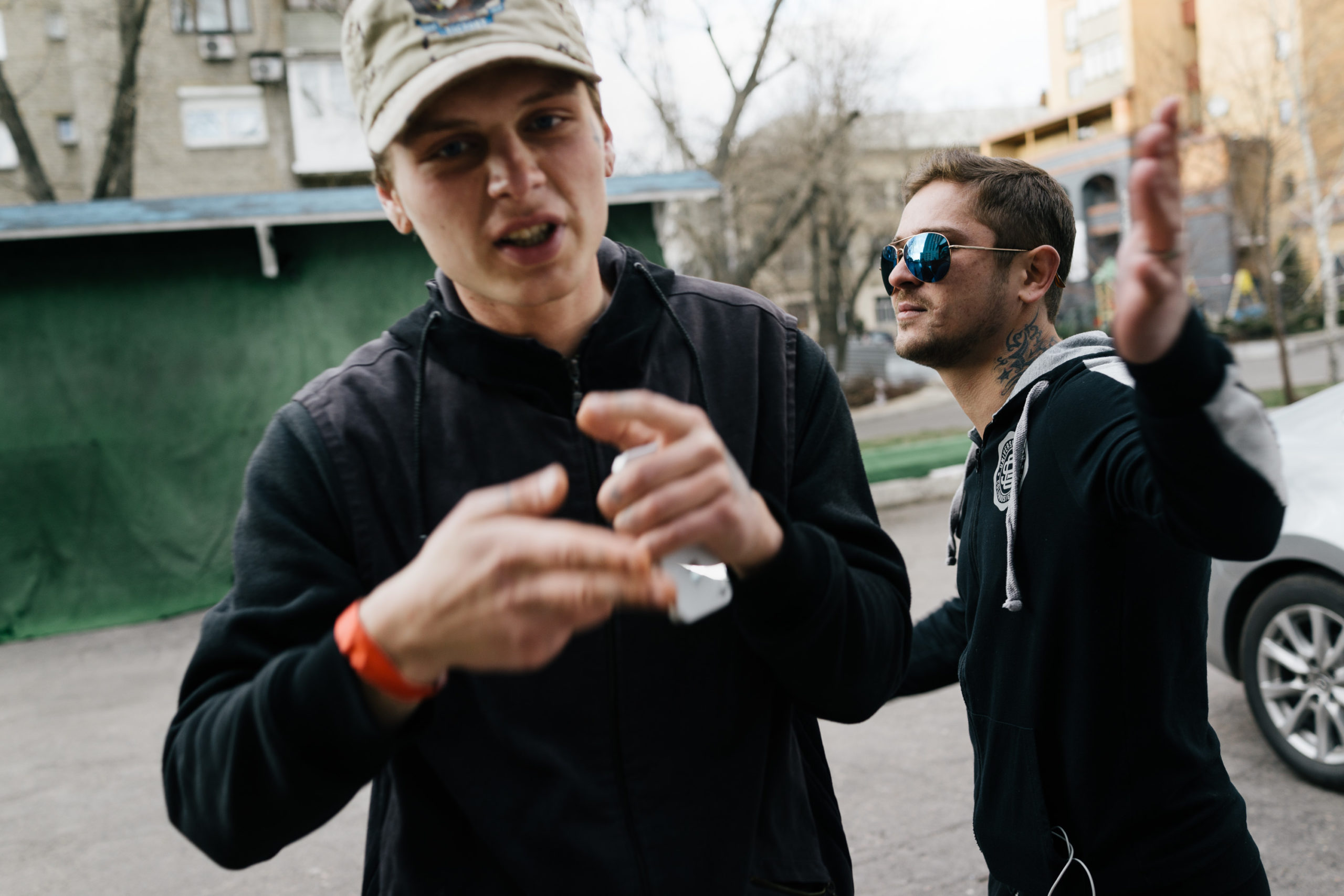
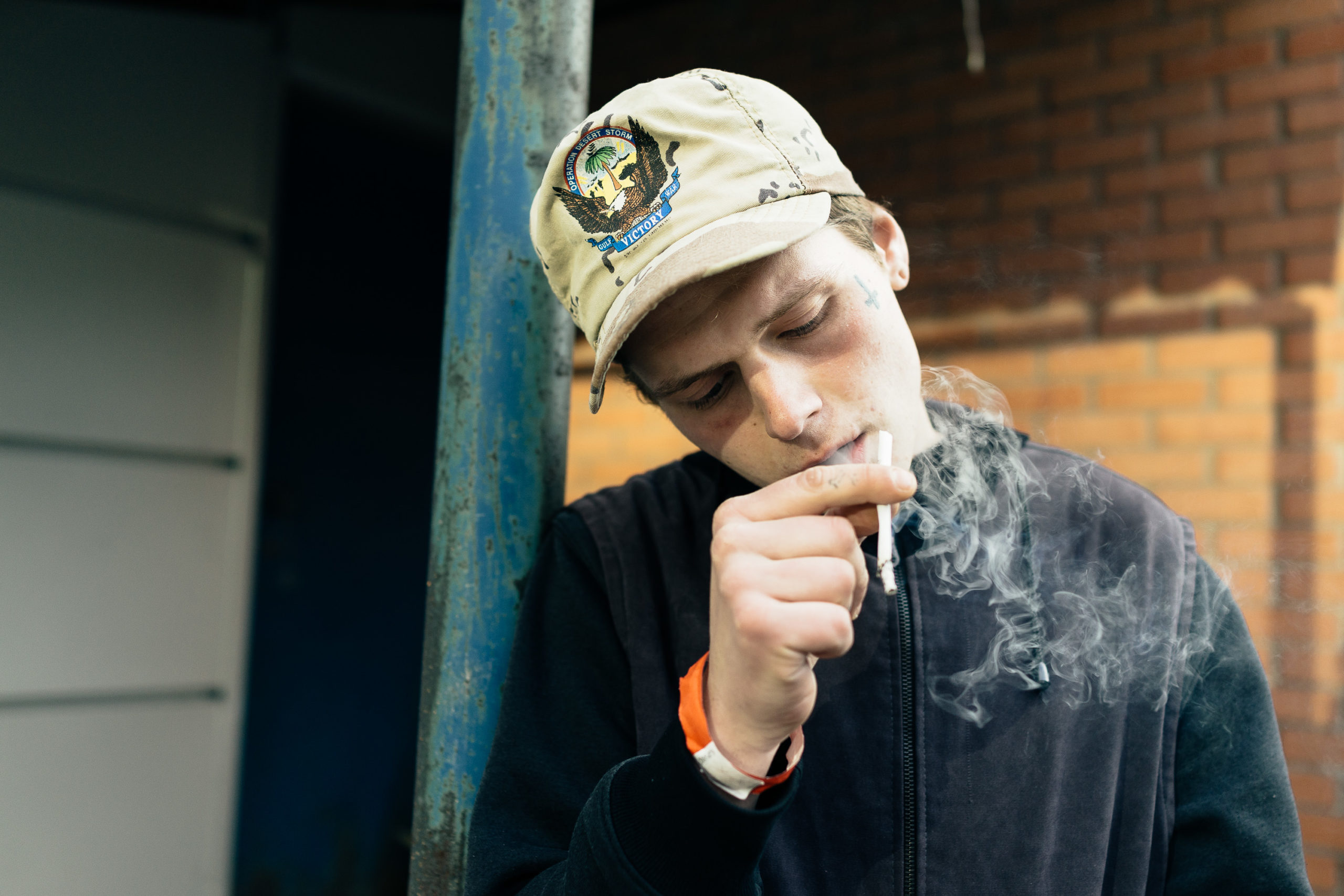
I text amidst the rumble
Of the guns and Grad rockets
One republic – one love
But the cannonade interferes
Shot – explosion
A wall collapses
This is no ATO, brother
This is war
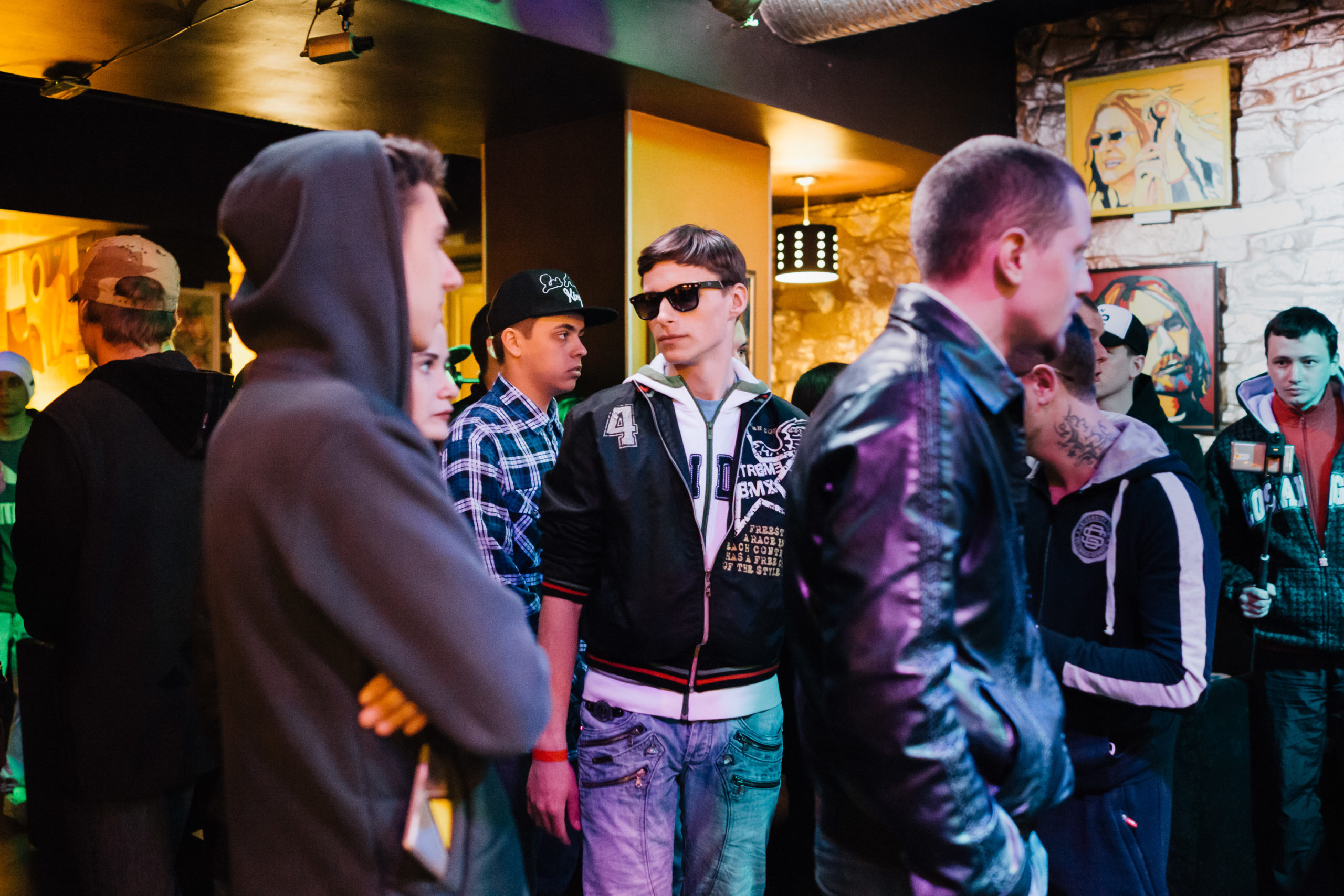
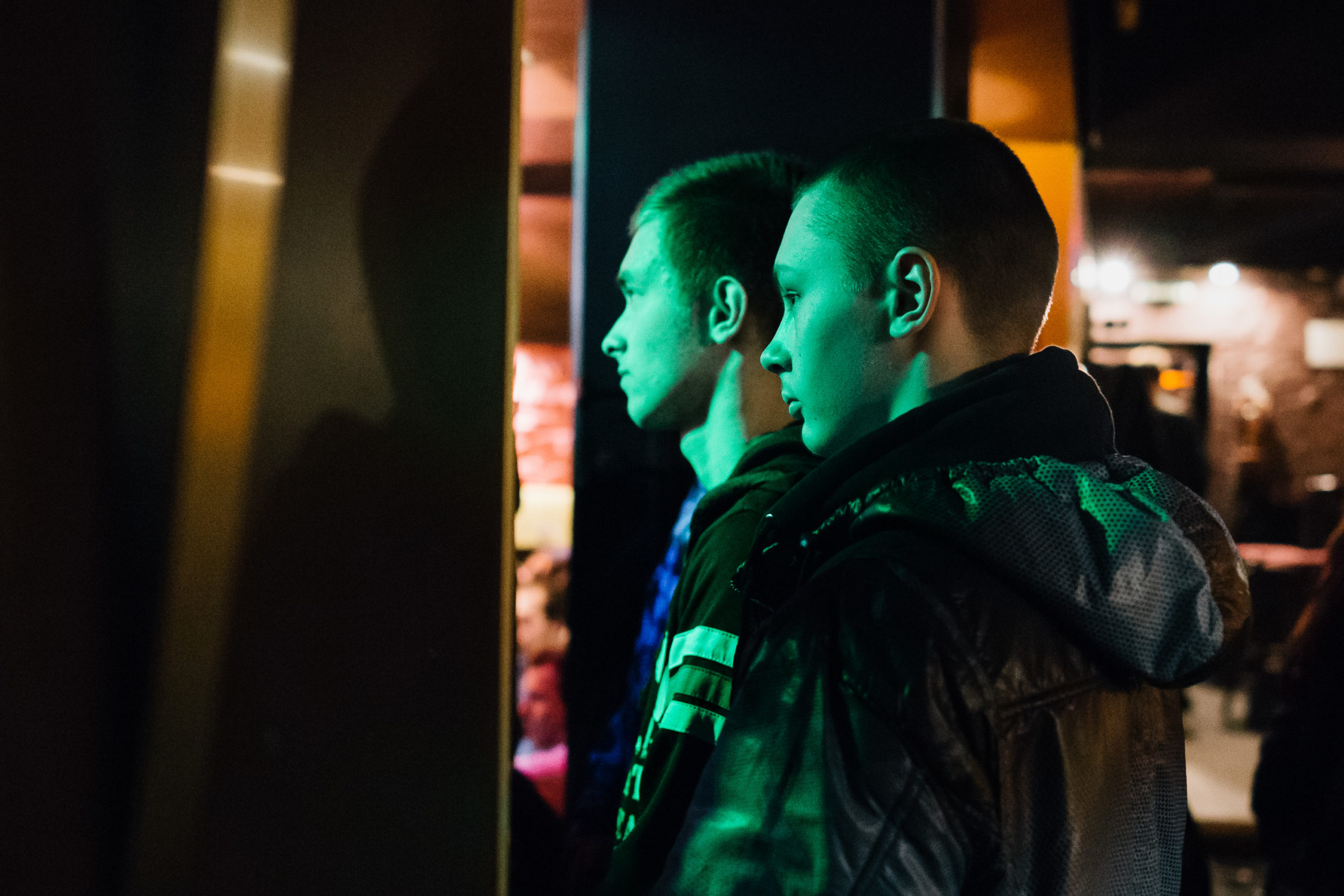
Donetsk was renowned in Ukraine and in Russia as a hip-hop stronghold. In the past, local rappers also used to compete against other Ukrainian crews, against Kharkiv and Lviv, but that’s history now. Those who are successful record their tracks in Russia. Golos Donbassa for example, or the lads with the baseball caps from Clan 062, who today have mingled with the audience in the cellar; they’re up and coming stars. 062 is the dialling code for Donetsk. Hip-hop is thriving on the city’s black coal ground and in its factory ruins. But who wants to stay here?
This city is dead, completely dead, says little Jarik, who’s wearing dark sunglasses. He’s applying for a DPR passport, then he’ll be off across the eastern border. His girl is waiting in Tatarstan. There’s nothing to keep him here anymore. Now he’s climbing on to the stage together with tattooed Vova. They shout into the microphone: “I’m not dying, I keep on breathing, I keep on dreaming.” Dreaming in Donetsk, ha! Jarik had joined the Oplot fighters. He fought in Olenivka for eight months. It’s better to sit in the trenches than to sit at home, he says. As a civilian you never know what’ll happen next. At the front, you keep track of things. But now Jarik is tired of the war and doesn’t want to wait for the Big Brother to finally take Donbass in its arms. Dawaj, Dima Dendy, another track.
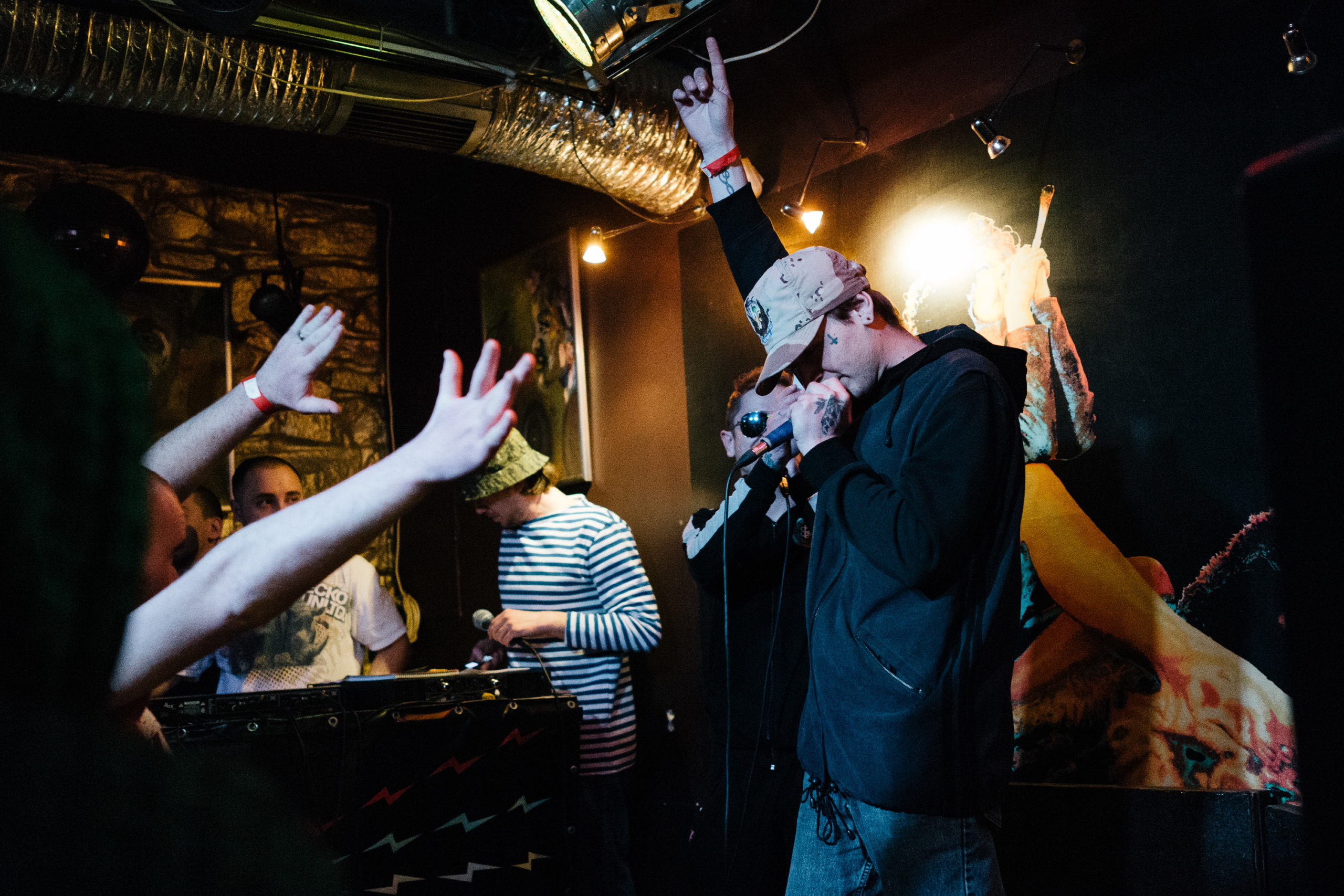
This is Donetsk, brother
The voice of dark streets
There’s enough space for everyone
Who doesn’t make any trouble
Uncle Sascha calls the shots here
Ukraine is Europe
So it should take the risk
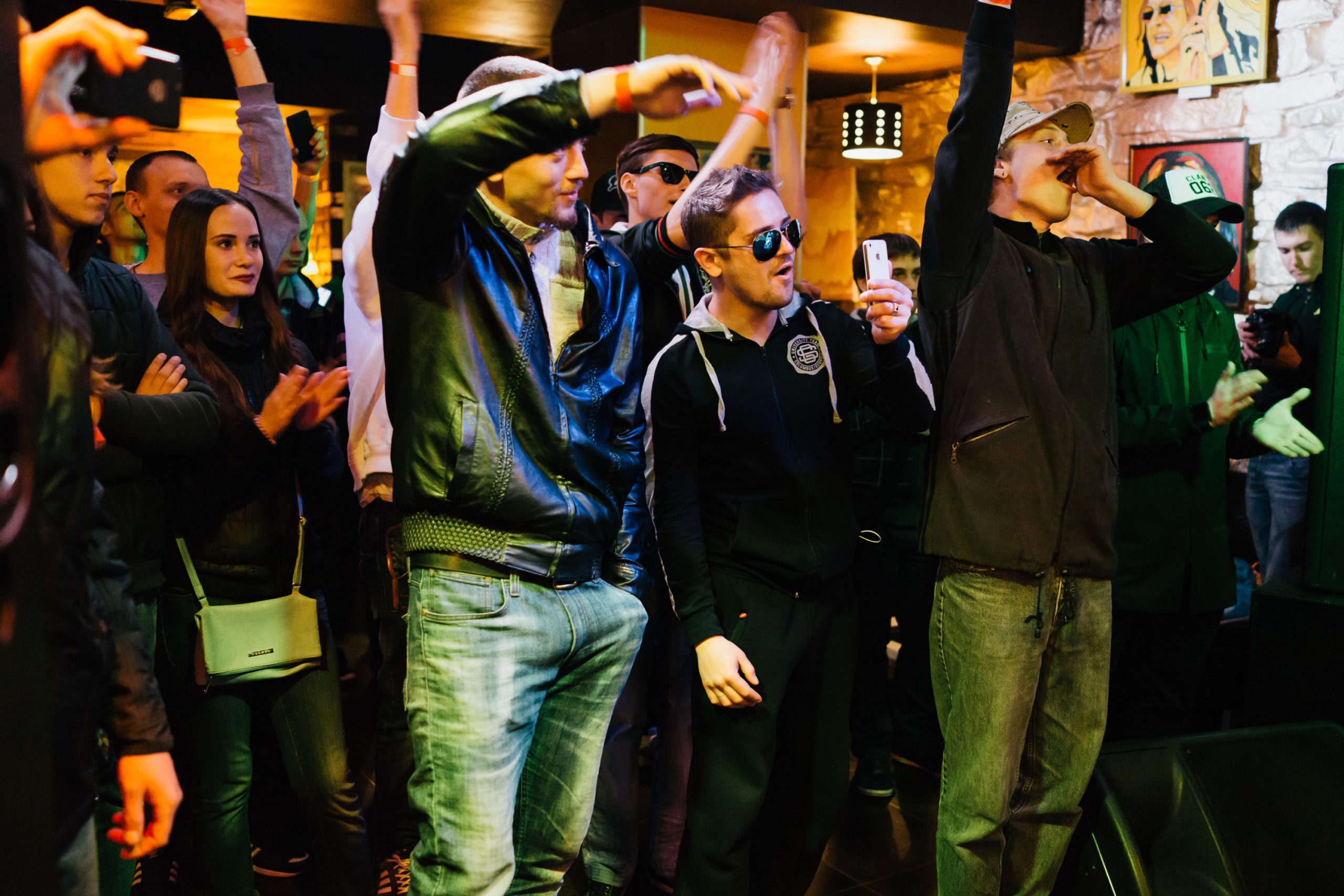
Original in German. First published in the book “Grauzone: Eine Reise zwischen den Fronten im Donbass” [Grey Zone: A Journey Between the Front Lines in Donbass], published in April 2018 at bahoe books, Vienna. The research trips were made possible by funding from the Crossing Borders programme of the Robert Bosch Stiftung.
Translated into English by Barbara Maya.
This text is protected by copyright: © Jutta Sommerbauer / bahoe books. If you are interested in republication, please contact the editorial team. Copyright information on pictures, graphics and videos are noted directly at the illustrations or on top of the article. Cover picture: Photo: Florian Rainer